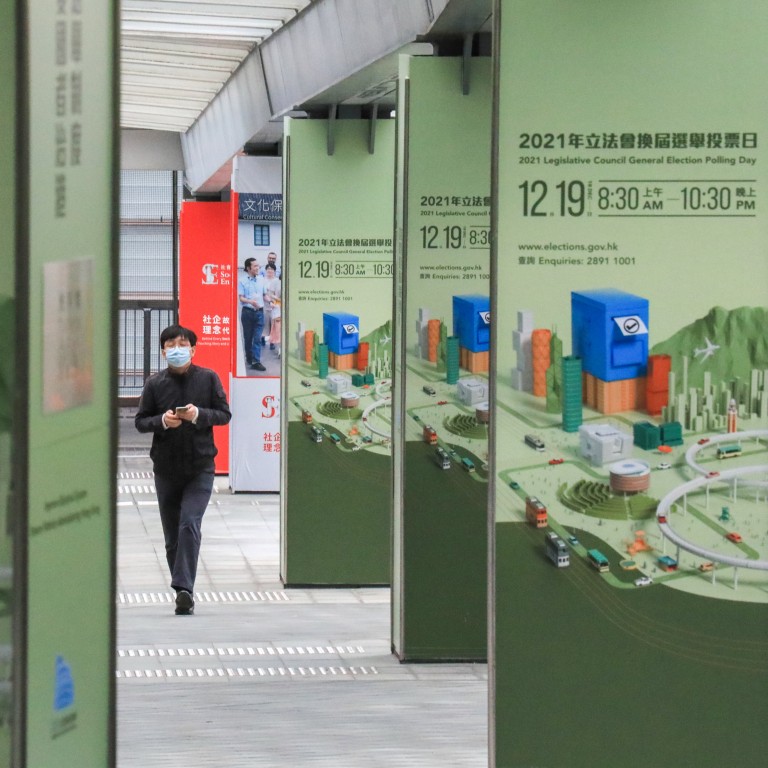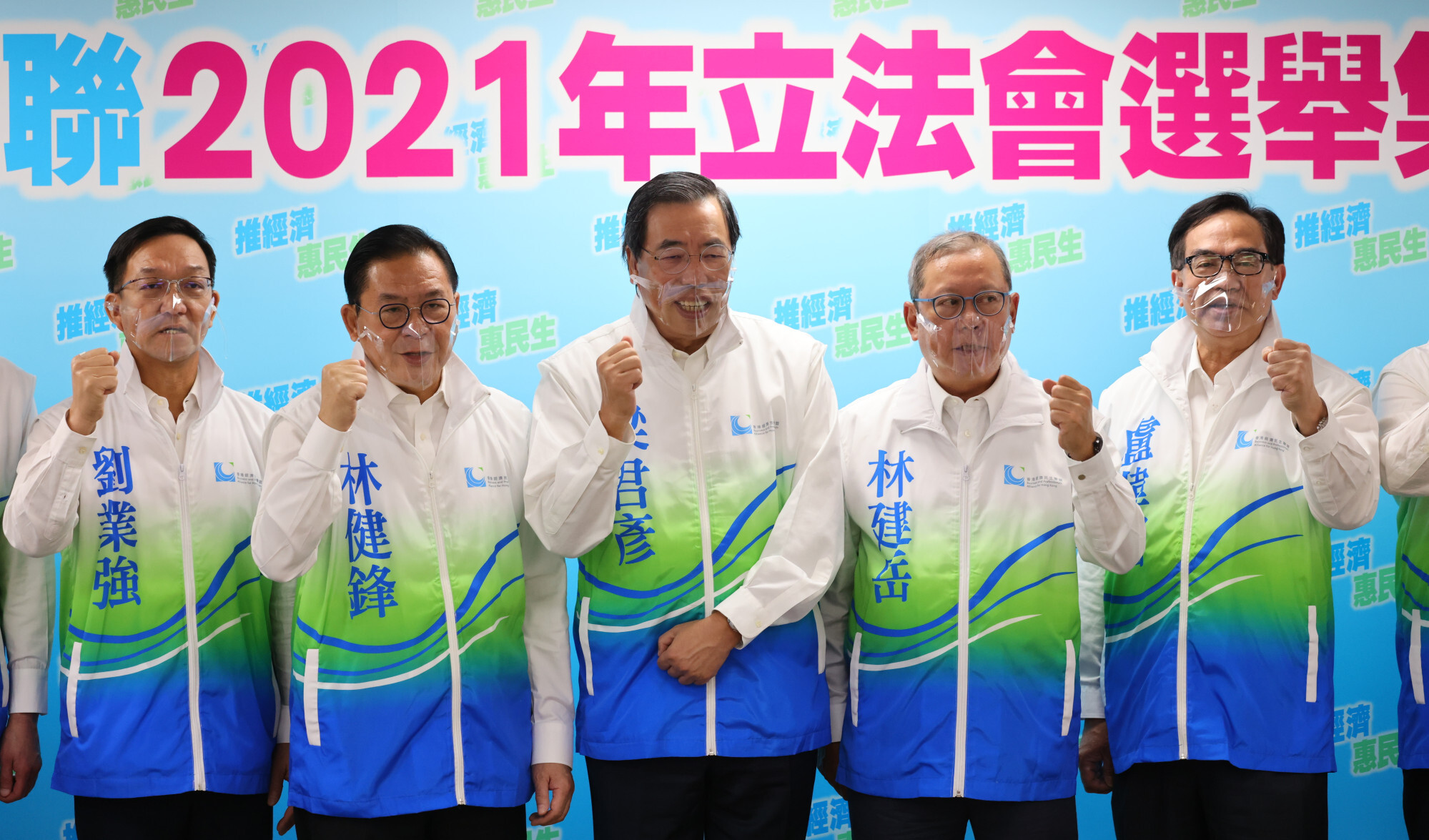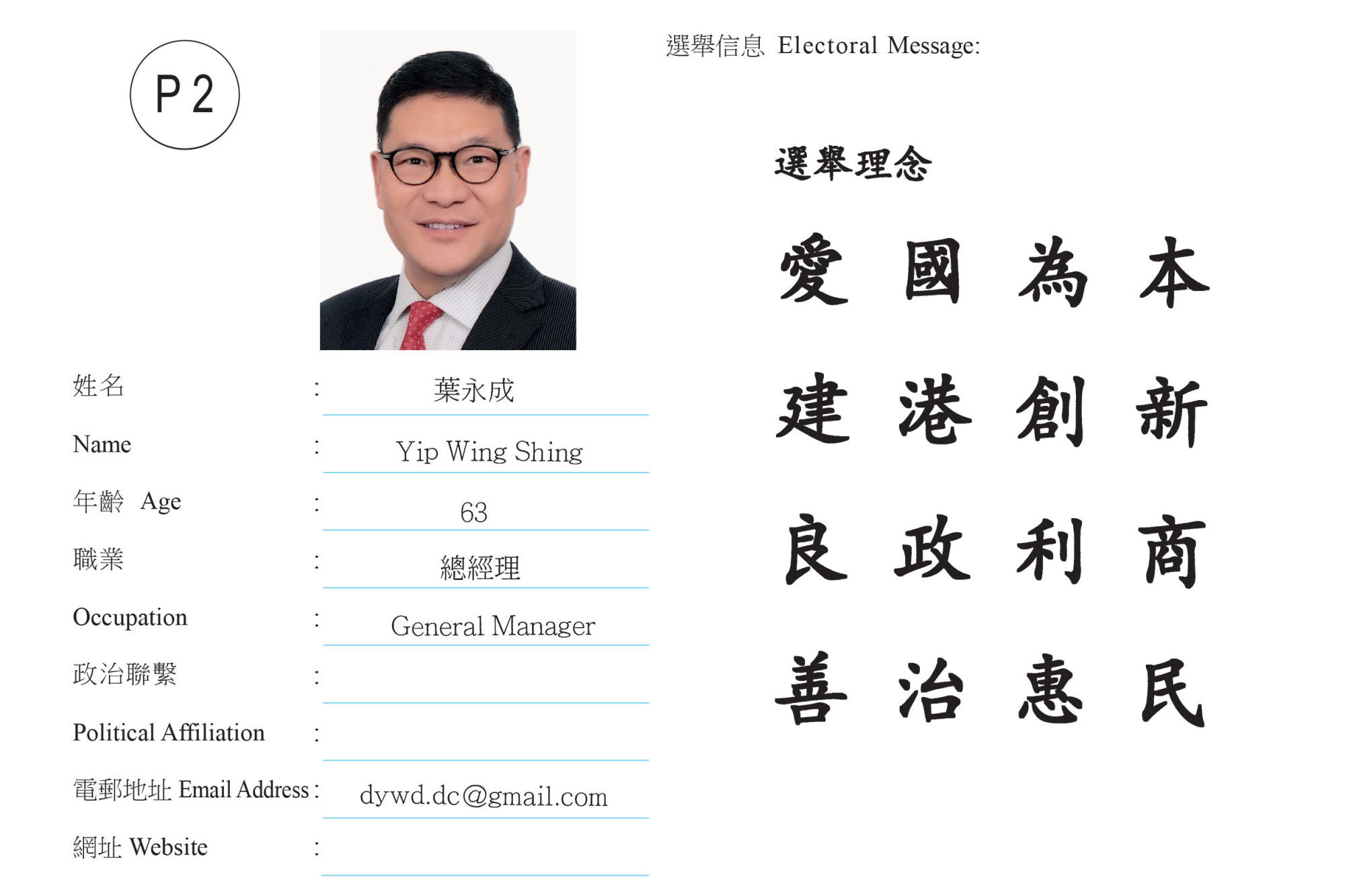
Functional constituencies in Hong Kong’s Legco will all be contested for first time, but is the competition just for show?
- Some candidates’ manifestos are virtually indistinguishable from their ostensible rivals’, while others’ platforms amount to little more than slogans
- Analyst says some ‘taking the plunge simply to heed Beijing’s call for competition in the Legco election’
Some functional constituency candidates in Hong Kong’s coming Legislative Council election have platform slogans perceived by critics to be vague, while the mission statements of others appear similar to that of their rivals, prompting analysts to question the competitiveness of the poll.
The election will be the first for the legislature since Beijing’s overhaul of the city’s political system to ensure only “patriots” held power. It is also the first time since Hong Kong’s return to Chinese rule in 1997 that all 30 seats among the 28 trade-based functional constituencies will be contested.
But some challengers’ vague “platforms” submitted to the Registration and Electoral Office have done little to distinguish them from their competitors, and observers have noted that many slogans amount simply to bland catchphrases such as “new face, new pace, and new page”, “new chapter for Hong Kong society”, “love the country” and “good governance”.
Only 3 Hong Kong Legco candidates identify as ‘pro democracy’
Tian Feilong, an associate professor at Beihang University’s law school who advises Beijing on Hong Kong affairs, said it appeared that competition in some functional constituencies was less than genuine, with campaigning reduced to a formality.
“Chanting slogans is not good enough. Those candidates fail to spell out how they will address the demands of the voters in their sectors,” he said.
A total of 153 Legco hopefuls, including 67 running in functional constituencies, passed the Candidate Eligibility Review Committee’s vetting process and were cleared to run in next month’s election.
In addition to creating the vetting body, Beijing’s overhaul of the political system expanded the legislature from 70 to 90 seats, while simultaneously slashing the number of directly elected ones from 35 to just 20.
Thirty seats will be returned by the 28 functional constituencies, which represent trade-based sectors such as commerce, industry, finance and insurance. The remaining 40 seats will be picked by 1,448 members of the newly empowered Election Committee, which is stacked with Beijing loyalists.
Next month’s poll will be totally devoid of candidates from mainstream opposition parties, and members of the pro-establishment camp have reportedly been informally coordinating among themselves to ensure every constituency will be contested, if only by intra-bloc allies.

In the 2016 Legco election, 12 pro-establishment candidates representing 10 functional constituencies were returned unopposed.
One of those constituencies was the Heung Yee Kuk, a rural body that represents indigenous villagers in the New Territories. This year, the body’s vice-chairman, Mok Kam-kwai, will be taking on his boss at the kuk, incumbent Kenneth Lau Ip-keung, marking the first time the seat has been contested since the first post-handover Legco election in 1998.
However, this year’s race will not exactly be a contest of ideas, with five of the six points in Mok’s electoral message nearly identical to Lau’s.
Mok backs the Northern Metropolis development strategy, an ambitious plan unveiled by Chief Executive Carrie Lam Cheng Yuet-ngor in her policy address in October to transform the city’s land along the border with Shenzhen into an IT and housing hub.
Lau, who is the son of the late rural boss Lau Wong-fat, similarly calls for developing the area near border checkpoints in northern New Territories.
Mok advocates stepping up “patriotic education” in rural areas, while Lau supports such an initiative citywide.
Mok, who is both a Heung Yee Kuk constituency voter and a member of the Election Committee, was even one of Lau’s nominators. There are only 161 voters in the Heung Yee Kuk constituency.

When contacted by the Post, Mok declined to answer questions about the election, saying he was tied up with personal matters.
However, he told local media a few weeks ago that he initially did not intend to run for a Legco seat, but changed his mind after the electoral overhaul. He added that he hoped to gain “some knowledge” from the election.
The commercial (second) sector, which returns a representative of the Chinese General Chamber of Commerce to the legislature, is also witnessing its first contested race since the handover. Yip Wing-shing, a committee member of the Beijing-friendly chamber, is challenging incumbent lawmaker Martin Liao Cheung-kong.
It took Yip just 16 Chinese words to offer his reasons for running in the sector. His electoral vision includes “loving the country”, “building Hong Kong”, and “good governance which is conducive to improving the business environment and people’s livelihoods”.
Yip did not respond to inquiries from the Post.

Chan Kin-por, who was returned uncontested in the insurance sector in 2012 and 2016, faces a challenge this year from Chen Zhaonan, general manager of CMB Wing Lung Insurance Company.
Chen’s platform was almost as succinct as Yip’s, containing just two lines: “New face, new pace, and new page for the insurance industry. New vision, new mission, and new chapter for Hong Kong society.” He also did not respond to questions from the Post’s.
Meanwhile, Lo Ching-kong is challenging incumbent Jimmy Ng Wing-ka in the industrial (second) sector, which guarantees the Chinese Manufacturers’ Association a Legco seat. The last time the sector saw a contested poll was in the first post-handover election in 1998.
Ng offered few details in his manifesto, but pledged to serve as a bridge between the chamber and the government, to improve the business environment and to safeguard national security.
Beijing loyalists face off in televised debate ahead of Hong Kong’s Legco poll
Lo, who became a member of the association’s general committee earlier this year, denied being an also-ran, and insisted that his promise to focus on young industrialists and new companies differentiated him from Ng.
“I am confident that my views will be backed by the young generation in the industrial sector. Voters in our constituency are discerning and will make the right choice,” he said.
There are 592 voters in the industrial (second) sector.
Candidates taking on incumbents in the industrial (first) sector, which represents the Federation of Hong Kong Industries, and the commercial (first) sector, which represents the Hong Kong General Chamber of Commerce, have also failed to put forward concrete platforms.
In the commercial (first), incumbent Jeffrey Lam Kin-fung, of the Business and Professionals Alliance (BPA), is being challenged by Edmund Yew Yat-ming, senior vice-president of Lai Fung Holdings under the Lai Sun Group. BPA chairman Peter Lam Kin-ngok leads the group.
In the industrial (first), Andrew Leung Kwan-yuen is facing a challenge – for the first time since 2004 – from the Liberal Party’s Leung Yat-cheong.
Over half of Hong Kong voters can’t name candidates in Legco poll: survey
Ivan Choy Chi-keung, a political scientist at Chinese University, said some novices in the functional constituencies appeared unbothered that they had failed to set themselves apart as candidates.
“They even don’t mind that their manifesto is nearly identical to their rivals’,” he said.
“I think some of them are taking the plunge simply to heed Beijing’s call for competition in the Legco election.”
Tian Feilong, the Beijing adviser, said the candidates had “a lot to learn”.
“Based on what we see from the manifestos unveiled so far, the electioneering of these candidates is inadequate,” he said.
“Contested races don’t necessarily mean a better quality of democratic participation if candidates fail to come up with decent platforms.”
Writing on his blog on Sunday, Financial Secretary Paul Chan Mo-po lauded the credentials of the 153 eligible candidates, saying the field had “achieved balanced representation”.

